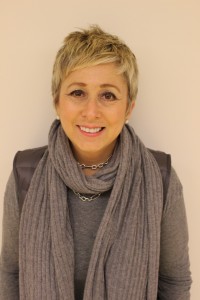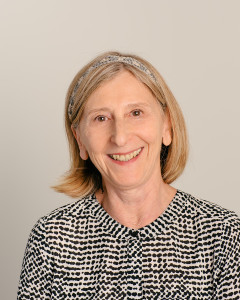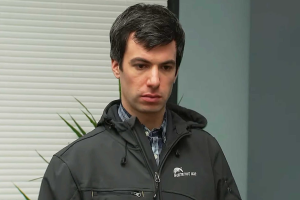Despite the high cost of living in British Columbia, the face of Vancouver’s Jewish community is changing rapidly, with 36 per cent of its population born outside of Canada – the largest percentage in the country.
In the Grade 1 classroom at Richmond Jewish Day School (RJDS), half of the class speaks English as a second language, with students hailing from Israel and Argentina and speaking a mixture of Hebrew, Russian and Spanish.
“There’s definitely a growing number of Israeli families in all our Jewish day schools,” said Abba Brodt, principal at RJDS. Among them is the second wave of Russian Jews consisting of Russian emigres who made aliyah as children and moved to Vancouver after doing army service in Israel and starting their families.
“They maintain strong Russian ties, but have an incredibly strong connection to Judaism and Israel,” he said.
The new arrivals place extra demands on Jewish day schools in terms of meeting their children’s language needs, and RJDS has had to shift resources internally so children of new immigrants can learn successfully in class.
“When people come, what’s our obligation to them?” Brodt said. “They want their kids to get a Jewish education as they get established. Many of these parents come without jobs, are not established financially and are trying to adjust, but it takes many, many years. The only menschlich thing to do is to open our doors, figure it out and let them know they’re not a burden at all. I think that’s the right approach for any Jewish organization in town. The faster we help them get on their feet, the better for the community.”
Adjustment is easiest for the youngest children. Brodt recalled a Russian Israeli family that arrived in June 2014 with a kid who couldn’t speak a word of English. “He entered kindergarten, and by December that year, he was speaking to his parents outside of school hours, in English!”

At Vancouver Talmud Torah (VTT), head of school Cathy Lowenstein has also witnessed an influx of new immigrants from Israel, Brazil and this year from Estonia and Hungary.
“For students in the younger grades, ESL support isn’t as much of an issue, as they can really immerse themselves in language much faster than students in intermediate grades. But over the past few years, we’ve increasingly had to allocate budget to students who require ESL support,” she said
That can be difficult to do, because ESL needs vary year by year. “Often these students don’t present until late summer, so we’re left trying to reallocate dollars in August so that we can properly help them transition into the school.”
Tuition assistance is provided on a case-by-case basis, and by August, VTT has already allocated close to $2 million in assistance, Lowenstein said. “Even though we may have allocated our cap, we do our very best not to turn away a family wanting a Jewish education.”
Before they arrive, Jewish families have researched the Lower Mainland’s Jewish schools carefully, both Brodt and Lowenstein agree, and a small percentage shop around to find the school where they can get the cheapest tuition price.
“They won’t get that at VTT,” Lowenstein said. “It costs money to deliver programming, and most newly arrived families recognize that. They don’t always know what they’ll do for work when they arrive or where they’ll live, but their primary goal is to enrol their kids in school first and everything else will work itself out.”
Newcomers are attracted to Vancouver by the quality of life, says Ezra Shanken, CEO of the Jewish Federation of Greater Vancouver (JFGV).
“Immigration is driven by quality”
“Today’s immigration is driven by quality. We see a great deal of quality here in Vancouver. That’s why we see that the large numbers of Israelis who are coming are… motivated by the fact that Vancouver is ranked high in places to raise your kids,” Shanken said.
“They and other new Jewish immigrants are coming because this is a great place to raise your kids. Not everyone is coming here with money, but… for all the challenges of affordability in Vancouver, this is still an extraordinary place to live and is attracting really amazing people who want to be here.”
And even with the expense of living in British Columbia’s Lower Mainland, the area’s Jewish population grew 14.2 per cent between 2001 and 2011, Shelley Rivkin, the JFGV vice-president for planning, allocations and community affairs, told The CJN in 2014. “That’s a faster increase than any other city in Canada, and our population is now at 26,750.”
Nevertheless, financial pressures are indeed having far-reaching effects on the Jews who call this corner of the West Coast home. Approximately 14,000 of them live in Vancouver, close to 6,000 in Richmond and the remainder in outlying cities such as Burnaby, New Westminster, Port Coquitlam, Coquitlam, Port Moody, Maple Ridge and Langley – where Jewish resources are few and far between.
That’s because the high housing prices force many new arrivals into these outlying cities, where accommodation is a little bit more affordable.
While RJDS has space available for more students, the challenge lies in reaching those Jewish families who live in the outlying suburbs.
“We know there are 700 Jewish school-age kids in the tri-cities of Coquitlam, Port Coquitlam and Port Moody [east of Vancouver and northeast of Richmond], and as much as the schools may want them, how many families are going to have their kids get on a bus for an hour’s commute each way?” Brodt wondered.
“You have to be super-committed to do that when there are good public schools around. If I could create a pipeline to [neighbouring] Burnaby, I’d do it, but the possible customer base there is not ready to make that sort of commitment. They’re managing their Jewish lives out there, as is their right.”

At the JFGV, Rivkin noted that more than 850 children now live in underserved areas beyond the borders of Vancouver proper, and few are receiving any Jewish education. “With community support, Jewish educators can develop innovative programs via which these kids can access that education, sharing fully the richness of our traditions and strengthening their Jewish identities.”
In one such program, the federation collaborated with the Jewish Community Centre of Greater Vancouver and funded a pilot project to enable Jewish children living in Coquitlam, Port Coquitlam and Port Moody to attend Jewish summer day camp. The project made transportation and fee subsidies available to 22 kids.
The federation has established a regional communities task force that will begin work this month. In the meantime, the organization contributes to a shuttle bus in Richmond that helps seniors attend various community activities, and seniors at the Burquest Jewish Community Centre in Coquitlam can enjoy another day of programming thanks to additional funding provided to the Jewish Family Service Agency.
For young families, the PJ Library is an important outreach program, Rivkin noted. The Jewish Federations of Canada – UIA’s PJ Library sends a free, age-appropriate Jewish content book or CD every month to children age six months to seven years who are enrolled in the program.
“For many young families who are raising children in interfaith households and/or who live in the suburbs, PJ Library is a primary Jewish connection. Recently, 100 people attended a PJ Library Chanukah event in Coquitlam,” Rivkin said.
The federation is focused on the future of the Lower Mainland’s Jewish community and anticipating programming to reach its needs over the next 15 years.
“Our population of seniors is expected to double by 2030, and an increased number of them will be 85 or older, so programs and services for this group will need to be expanded,” Rivkin said.
“As issues of affordability persist, we expect there to be more Jews moving to more affordable suburbs that have little or no Jewish infrastructure. We expect these regional communities to play a larger role, and the Jewish federation will increase its focus on programs and services to reach them.”
The cost of living in Vancouver will likely continue to affect those who pay a premium to live near Jewish services and institutions, but find that the cost of Jewish life prevents them from participating.
According to the 2011 National Housing Survey, 16 per cent of the Lower Mainland’s Jewish community earned less than the living wage of $36,504. Among Jewish immigrants to the Lower Mainland who arrived between 2005 and 2011, the poverty rate is 25 per cent.
“We expect that increased subsidies for program participation will be needed,” Rivkin said, noting that the Tikva Housing Society, a non-profit that helps working-age Jewish low-income adults and families, will expand the affordable housing stock for the Jewish community by 42 additional units in Vancouver and Richmond by 2017.
Vancouver’s Jewish community is expanding and changing, and that’s a great reason to join it, Shanken said. To those considering a move out west, “Go for it,” he urges. “We have a diverse, growing community. The resources are growing and our ability to assist is growing with it. For those interested in coming here, this is really a Jewish community on the rise.”






